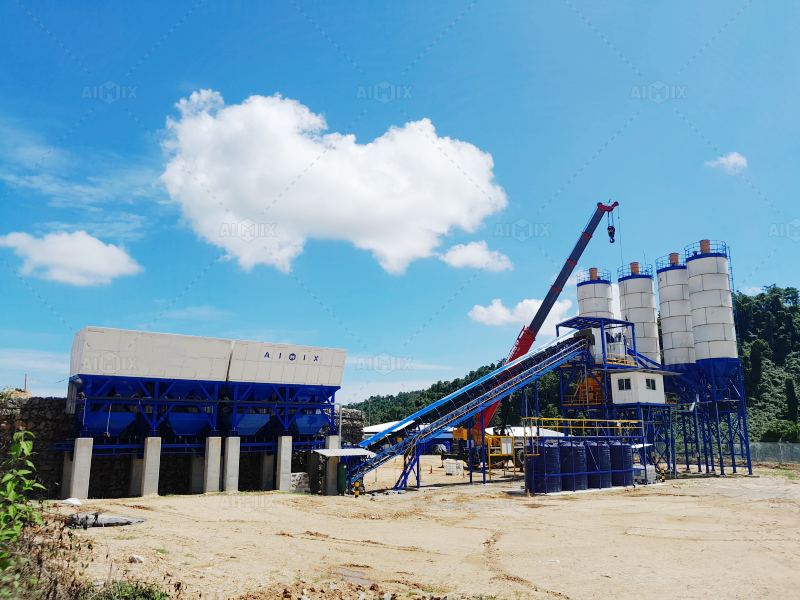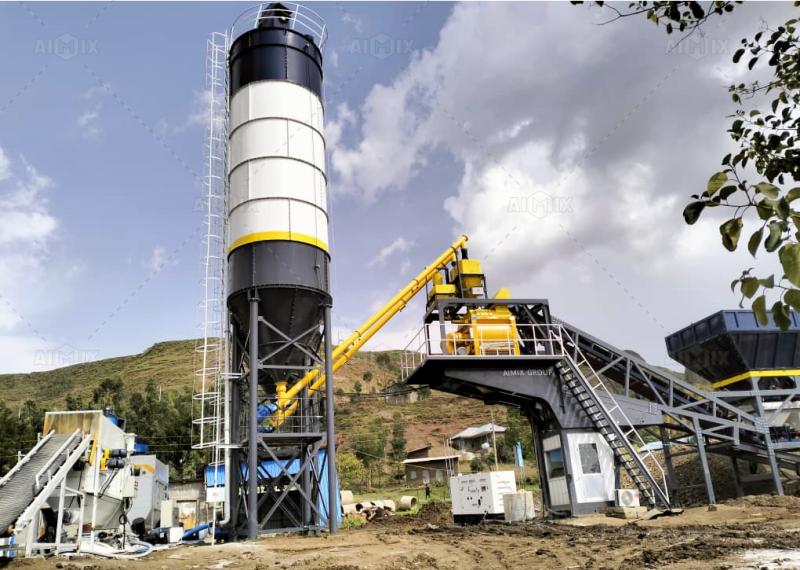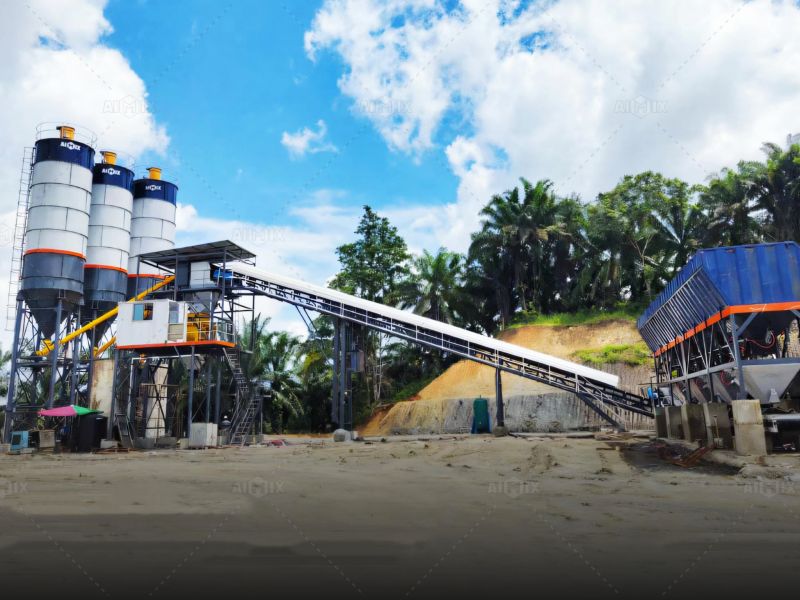Residential construction projects, including apartment complexes, housing developments, and small commercial buildings, require a reliable and efficient source of concrete. Selecting the right concrete batching plant types is crucial to ensure project timelines are met, quality is maintained, and operational costs remain manageable. With multiple options available, including stationary concrete batching plant, mobile concrete batching plant, and compact solutions, making the right choice depends on several key factors.

Understanding Concrete Batching Plant Types
Concrete batching plants are designed to mix raw materials—cement, water, sand, and aggregates—into high-quality concrete. The choice of plant type depends on project size, location, production requirements, and budget.
Stationary Concrete Batching Plant
A stationary concrete batching plant is fixed at a single location, making it ideal for long-term residential projects with high concrete demand. These plants are capable of producing large volumes of concrete consistently and efficiently. Stationary plants typically feature:
-
High production capacity suitable for large-scale residential developments
-
Advanced automation for precise mixing and consistent quality
-
Robust structures that can operate continuously with minimal downtime
While a stationary plant requires a larger site for setup, it is cost-effective for projects where concrete demand is sustained over months or years. For developers planning multiple residential buildings in one area, a stationary plant ensures uninterrupted supply and consistent quality.
Mobile Concrete Batching Plant
For smaller or dispersed residential projects, a mobile concrete batching plant offers flexibility. Mobile plants are compact, easy to transport, and quick to set up, making them suitable for short-term projects or sites with limited space. Key features include:
-
Easy relocation between construction sites
-
Moderate production capacity suitable for small to medium residential projects
-
Integrated design combining mixer, conveyor, and control system in a single unit
Mobile plants reduce transportation costs by producing concrete near the project site. For residential projects spread across multiple locations, a mobile plant ensures concrete is fresh, reducing the risk of quality degradation.
Compact Solutions and Mini Plants
In addition to stationary and mobile plants, compact or mini concrete plants are also available. These smaller units, sometimes referred to as concrete mixer plant for sale, are ideal for low-volume projects such as single residential buildings or small apartment complexes. They are easy to install, require minimal space, and are cost-effective for developers with limited budgets.

Factors to Consider When Choosing a Plant
Project Scale and Concrete Demand
The first consideration is the scale of the residential project. Large developments with hundreds of housing units benefit from a stationary concrete batching plant due to its high production capacity. For smaller projects or scattered residential sites, a mobile concrete batching plant or mini concrete mixer plant for sale may be sufficient to meet demand without over-investing in equipment.
Site Location and Accessibility
The available site space and accessibility significantly influence plant choice. Stationary plants require a larger, stable area, while mobile plants can operate in constrained sites or urban areas with limited room for equipment. Compact plants are ideal for sites with restricted access or temporary setups.
Quality and Consistency
Residential projects require concrete of consistent quality to ensure structural integrity. Stationary concrete batching plants typically provide higher automation and precise mixing, making them suitable for projects with strict quality standards. Mobile plants can also deliver high-quality concrete if properly calibrated and maintained, while mini plants are suitable for lower-volume requirements.
Budget and Investment
Budget constraints often guide plant selection. Stationary concrete batching plants involve higher initial investment but lower per-unit production costs for large-scale projects. Mobile concrete batching plants have moderate investment costs and reduced logistical expenses. Mini concrete mixer plants for sale are the most affordable option for small developers but may have higher per-unit costs if production volume increases.
Operational Flexibility
Residential projects often face varying construction schedules. Mobile plants offer flexibility to adapt to changing timelines and site locations, whereas stationary plants are better suited for continuous, long-term operations. Mini plants provide basic flexibility for quick, small-scale concrete production.

Combining Plant Types for Residential Projects
In some cases, developers may benefit from using a combination of plant types. For example, a stationary concrete batching plant can supply high-volume concrete for the main project site, while mobile concrete batching plants serve smaller or satellite sites nearby. This hybrid approach ensures consistent supply, reduces transportation costs, and improves operational efficiency.
Conclusion
Selecting the right concrete batching plant types is critical for residential construction projects. Factors such as project scale, site location, concrete demand, budget, and operational flexibility should guide the decision-making process. Stationary concrete batching plants are ideal for large-scale, long-term developments, providing high production capacity and consistent quality. Mobile concrete batching plants offer flexibility and cost efficiency for smaller or dispersed sites, while compact or mini concrete mixer plants for sale serve low-volume projects efficiently.
By carefully evaluating these considerations, developers can ensure timely concrete supply, maintain quality, and optimize investment costs, ultimately contributing to the success of their residential construction projects.